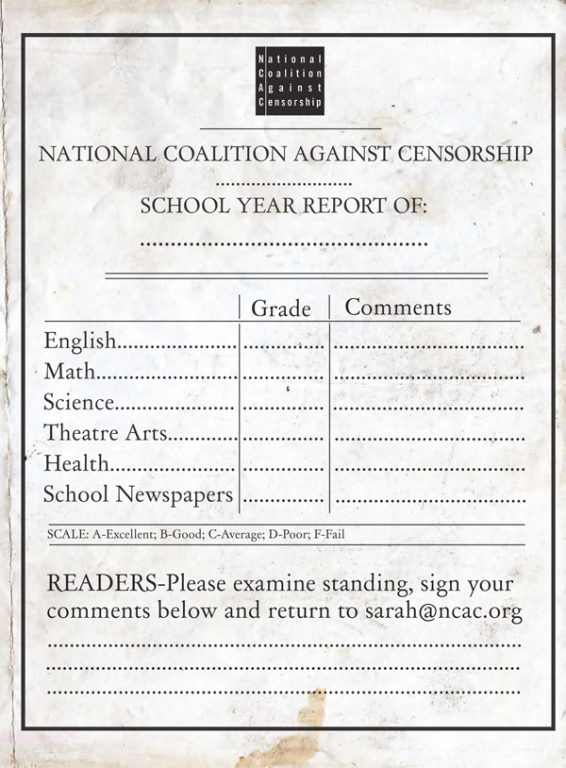The show must go on? Back in December Rowlett High School canceled a production of the musical Rent after controversy was sparked by some particularly vocal parents in the community. The school’s theatre director said she made the decision to cancel the show in the interest of the students involved: “In light of everything that has happened, I need to think of my students first and foremost. They are dealing with pressures that they don’t need at their age.” Unfortunately in creating a controversy, those who sought to censor the play prevailed.
On February 19, the New York Times reported on this and two other instances in which productions of the play RENT (an already edited “school edition”) were canceled to objections from parents or school officials. Though other peripheral concerns were mentioned, such as drug use and theft— the characters in the play are “squatting” in their apartment, part of a commentary the play makes on those displaced by gentrification— the central controversial issue was the presence of homosexual characters.
References to casual (read: not marital) sex were at issue in La Grande, OR where the school board upheld the Superintendent’s decision to cancel a student production of Steve Martin’s “Picasso at the Lapin Agile”, ignoring spirited and articulate appeals from the High School principal and drama teacher.
And more recently, a teacher in Grandfield, OK was fired for teaching the The Laramie Project – a play and film based on responses from Laramie residents after the murder of Matthew Shepherd. The teacher – Debra Taylor – led a project to recreate scenes from the film in her class. Superintendent Ed Turlington opposed the project and canceled the class. After a “mock funeral” protest, the teacher was suspended, and after she complained to a board member, according to Taylor, she was fired.
Interesting and often hopeful alliances emerge when high school school theatre productions get challenged or censored— students mobilize with teacher allies, concerned community members reach out to local press and national advocacy groups, and in three of the five cases mentioned here local universities opened up their doors to the high school productions. In La Grande, Oregon, Steve Martin himself stepped into the ring, offering to assist the censored students in getting their production on stage. But while the show often does find a way to go on (though not in Grandfield) and censorship incidents offer those involved an invaluable political education, the trend of student productions having to go off campus is one students and educators should push back on.
There have been hopeful signs, like this demonstration in support of a student production Laramie Project in Reading, MA, for which we will give some extra credit. But considering the bad behavior of superintendents and school boards, theatre’s final mark for the year is a C+.
Also of interest: Free Speech in School (Does it Exist?) Film Contest


